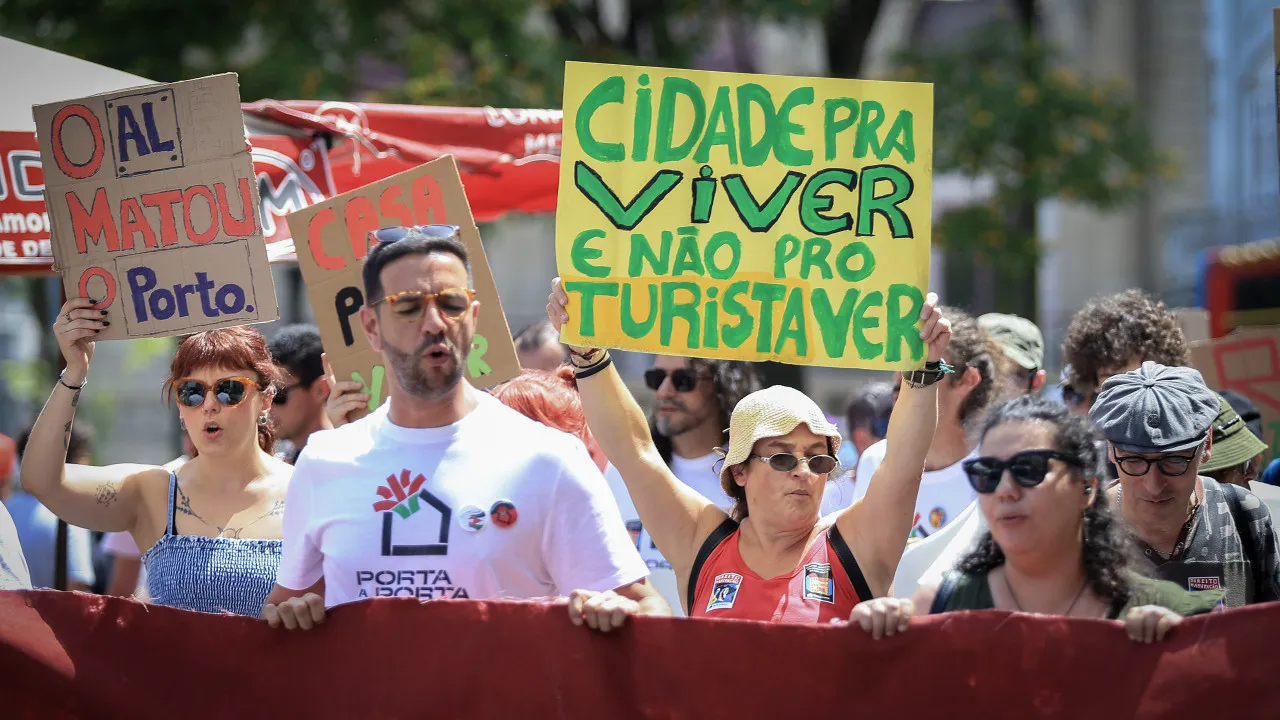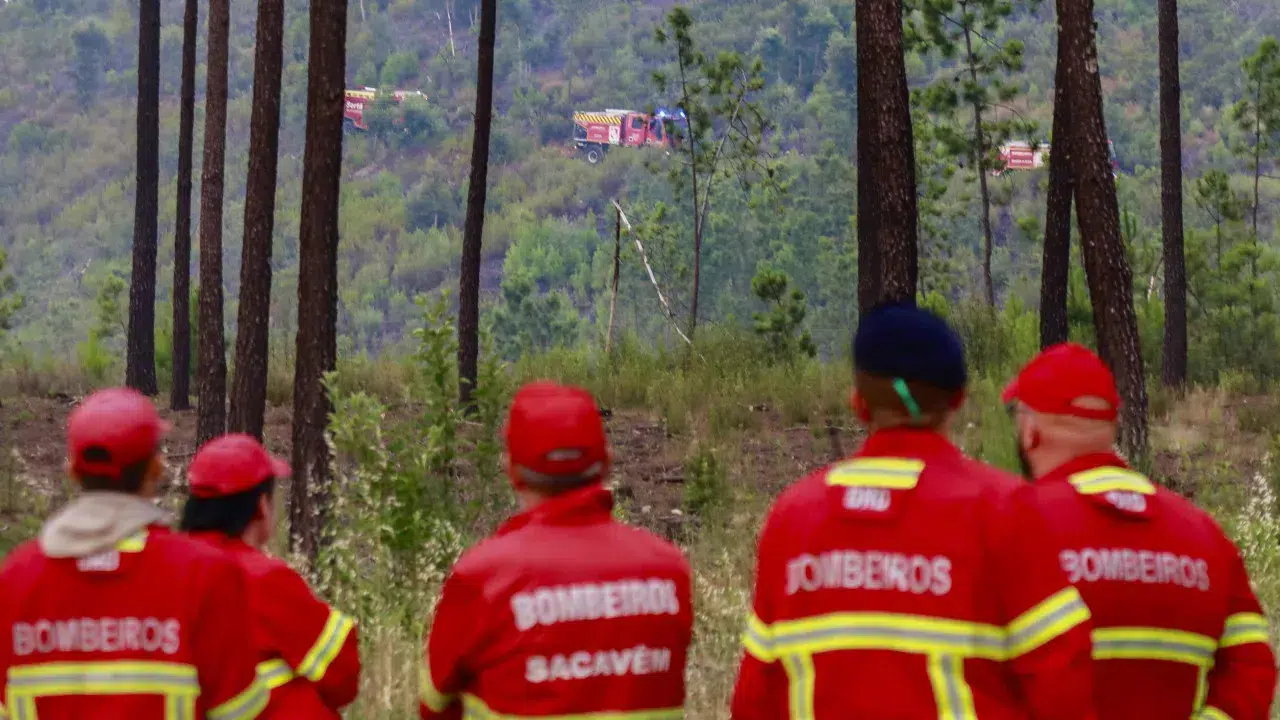
“We are here once again to demand the right to housing for everyone, without exception. The problem has been worsening in recent years, and those who truly need support have been left out. We need a government that implements measures to help the population, those who live and work in our country,” said Raquel Ferreira from the organizing movement Porta a Porta.
In her view, “the government’s program does not include measures that help resolve this problem; on the contrary, it aggravates it.”
“And that is why we are out on the streets today, as we were on Saturday in 12 other cities across the country, as we were months ago, and as we will continue to be if there is no response,” she stated.
Raquel Ferreira cited data from the National Institute of Statistics (INE) to claim that “house prices have risen as never seen before.”
“The outlook we have is not encouraging, and it is necessary to have this popular mobilization for the right to housing, because it is a matter of dignity,” she added.
The INE Housing Price Index showed that in the first quarter of this year, compared to the same period last year, house prices increased by about 16%, “the largest increase since records began in the INE databases,” according to the protest organizers, who expected greater participation.
“We know this weather is inviting for going to the beach or other family programs, but the truth is, evictions don’t stop because it’s hot, and rents don’t get lower because of the weather, so it’s essential that people understand the seriousness of the problem and join us,” she urged.
Agostinha Maia, living in social housing in Porto, chose to join the protest not because she lacks a home, but because the situation in this sector in the country “is a disgrace.”
“Nowadays, the national minimum wage does not cover rent. Recently, I had a child whose rent increased from 650 to 1,200 euros. Fortunately, he managed to solve his problem, but most do not have the same conditions. And where will they live, with their grandparents? Even they risk losing their own homes,” she lamented.
Another participant, an elderly man, expressed that he was fighting for the right to housing, but also for peace.
“Without peace, everything is very bad,” he noted, adding that, although he owns his home, he decided to participate “for the young people who no longer have conditions and had to return to their parents’ house.”
He recounted that in his youth, he lived in an area without bathrooms and for a long time went to public baths at Campo 24 de Agosto in Porto.
“Do they want to return to that? It’s unfair,” he asserted.
Fernando Barbosa also attended in solidarity with the younger generation, those who “have already lost hope of having a home.”
Joaquim Gomes, known as Maradona of Graphic Arts, explained that he is “fighting” because his conscience demands it.
“I thought I would find hundreds and hundreds of young people here. And where are they, the young people? At the beach, sleeping,” lamented Joaquim Gomes.
Gonçalo Monzone, aged 26, chose not to go to the beach to take part in the protest.
He came from Vila Real, is self-employed, and has started a tourism animation organization, but the prospects of moving out of the family home are “a bit complicated.”
“We see rents increasing more and more, more tourist developments and local accommodations being built, and we see almost no measures for housing and social housing. And I think it’s very important for us young people, and for people in general, to fight for this right,” he stated.
After gathering in Praça da Batalha, the protesters marched to Avenida dos Aliados in Porto.




